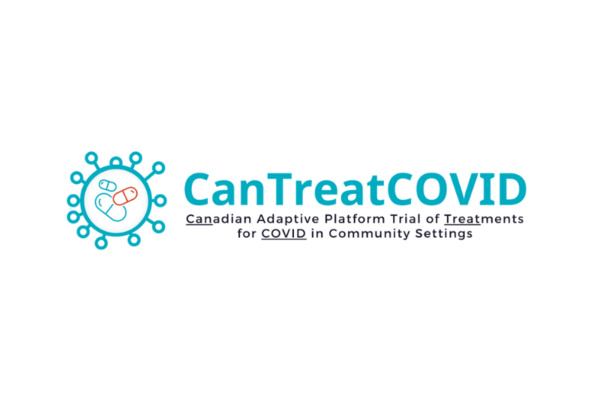Breadcrumbs
- Home
- Research
- UPLEARN (Research Network)
- Meet our team
- UPLEARN services
- Current Projects
Current Projects

Canadian Adaptive Platform Trial of Treatments for COVID in Community Settings (CanTreatCOVID)
Principal Investigator: Andrew Pinto (MD CCFP FRCPC MSc)
DFCM Faculty Involved: Michelle Greiver MD, MSc, CCFP, FCFP (Co-Principal Investigator), Peter Selby MBBS, CCFP, FCFP, MHSc, dipABAM, DFASAM (Co-Principal Investigator), Noah Ivers MD, PhD, CCFP (Co-Investigator), Rahim Moineddin PhD (Co-Investigator), Aaron Orkin MD, MSc, MPH, PhD (Co-Investigator), Navindra Persaud MD, MSc, BA, BSc (Co-Investigator), Ross Upshur BA (Hons), MA, MDm MSc (Co-Investigator)
Research Officer/Data Analyst: Celine Jean-Xavier, Babak Aliarzadeh
Project Summary: CanTreatCOVID will evaluate the clinical and cost-effectiveness of oral medications for SARS-CoV-2 (COVID-19) in non-hospitalized patients. The therapeutics to be investigated will be decided through a transparent Canadian COVID-19 Therapeutics Advisory Panel. The study will measure drug efficacy by comparing hospitalization at 28 days, as well as time to recovery and impact on “long COVID”. CanTreatCOVID will also assess changes in quality of life and health resource utilization to evaluate the cost-effectiveness of each therapeutic. Findings of this study will directly influence standards of care for COVID-19 in community settings in Canada and around the world. A national APT infrastructure will be established to evaluate the effectiveness, safety, and cost-effectiveness of new therapeutics for even beyond COVID-19, including for influenza, other upper respiratory pathogens, and other diseases in the future.
Funding Source: Canadian Institutes of Health Research, Health Canada

SPIDER: A Structured Process Informed by Data, Evidence and Research
Principal Investigators: Michelle Greiver MD, MSc, CCFP, FCFP (Nominated Principal Investigator), Noah Ivers MD, PhD, CCFP and Patricia O’Brien
DFCM Faculty Involved: Rahim Moineddin PhD (Co-Investigator), Braden O’Neill MD, DPhil (Co-Investigator) and Frank Sullivan PhD, FRSE, FRCP, FRCGP, CCFP (Co-Investigator)
Research Officer/Data Analyst: Celine Jean-Xavier, Sumeet Kalia
Project Summary: One quarter of Canadians over 65 years are prescribed ten or more medications. This use of multiple medications, termed polypharmacy, is associated with persistently higher healthcare needs, reduced quality of life, and increased health care costs. The Structured Process Informed by Data, Evidence and Research (SPIDER) is a 2-arm randomized controlled trial comparing the SPIDER approach to usual care on deprescribing in primary care for patients over 65 years experiencing polypharmacy. SPIDER is a 12-month intervention including participation in Quality improvement (QI) training and learning collaboratives, support through QI facilitation, and validated EMR data reports for audit and feedback. The primary outcome is prevalence of potentially inappropriate prescriptions (PIPs). We will also examine the proportion of patients with one or more PIPs. Patients completed surveys on their experiences with prescribing and impacts of medications on their quality of life. Primary care provider surveys are collected for feedback from the intervention, including knowledge gains, development of QI plans, and implementation of processes for deprescribing. Evidence generated from this RCT will provide broadly generalizable evidence on effectiveness of a comprehensive QI approach for complex population. SPIDER approach could be replicated to improve care for different issues. If effective, policymakers could consider whether all elements should be supported as part of high functioning healthcare systems.
Associated Publications: Improving care for elderly patients living with polypharmacy: protocol for a pragmatic cluster randomized trial in community-based primary care practices in Canada
Funding Source: Canadian Institutes of Health Research
